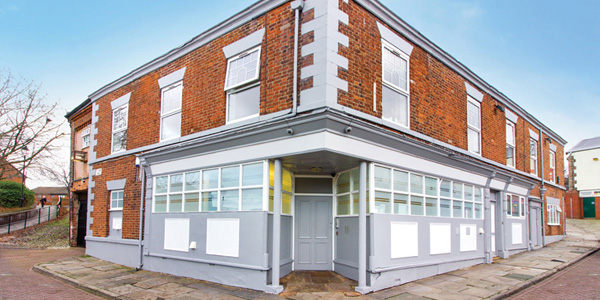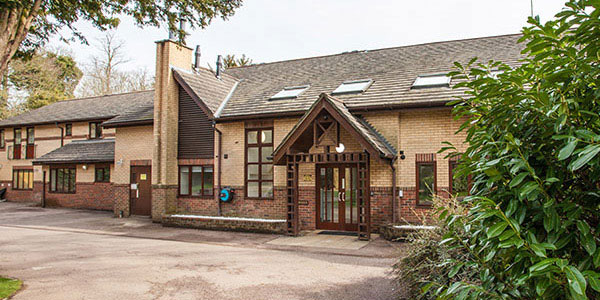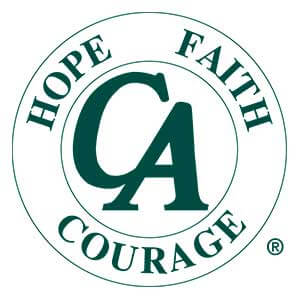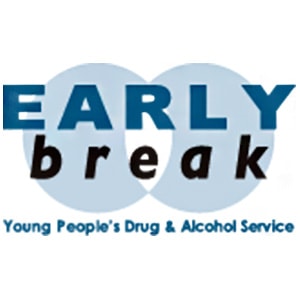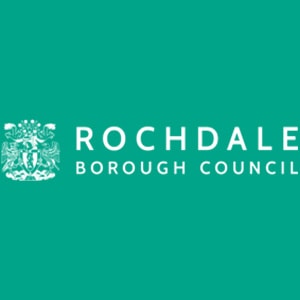Sadly, nowhere in Britain is untouched by the modern addiction epidemic – and this is as true for large towns such as Rochdale as it is for the inner-city areas which most commonly come to mind when thinking about substance abuse. Every year thousands of lives are lost to drink and drugs – legal and illegal – and the cost to those left behind and the society at large is immeasurable.
However, all is not lost: across the country facilities have arisen to treat addicts and set them back on the path to a happy healthy life. If you or a loved one are struggling with addiction, you too can find help at such a place. Read on to discover how rehab could save your life…
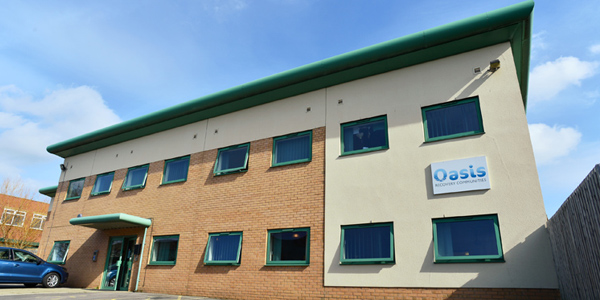
Built in 2009, Oasis Bradford was originally commissioned by the Department…
- Private
- 24/7 Nursing
- 24/7 nursing
- Residential
UKAT Rehabs
Oasis Runcorn is quite unique detox and rehab unit in offering two treatmen…
Banbury Lodge is a private UKAT rehab facility based in Banbury, Oxfordshir…
Liberty House Clinic is a fully furbished detox and rehabilitation facility…
-
- Free
- Outpatient
- 12 Step
-
- Drugs & Alcohol
- Outpatient
- Under 18’s
-
- Drugs & Alcohol
- Outpatient
- Free Service
- Load More
What Is Rehab?

Rehab describes a course of treatment for drug or alcohol dependence, typically at a residential facility. describes the process of staying at a dedicated facility to undergo treatment for addiction; “rehab” also describes the facility itself. Rehab usually consists of a detoxification (“detox”) phase, by which a patient’s system is cleansed of substances of abuse (during which process they usually go through a period of withdrawal, the worst effects of which may be ameliorated through various medications), followed by a longer period of therapy and care during which the root causes of their addiction are investigated and addressed, and they begin the process of learning to live without the substance or substances upon which they have come to rely.
In rehab, patients have the assistance of highly trained medical professionals who understand the nature of addiction and are on hand 24/7 to make the withdrawal and therapy phases as comfortable and safe as possible, allowing the patients to focus entirely on their own recovery and well-being, safe in the knowledge that the confidential nature of rehab means that their condition will remain secret.
Rehab is generally considered to be the most effective way of treating addiction, in that it tackles both the immediacy of physical dependency and the longer-term challenges of rebuilding an enjoyable and worthwhile life without drugs.
How can I get Someone into Rehab?
It is often said that someone suffering with addiction will come forward and ask for help when they’re ready However, the longer someone continues to bear the burden of addiction, the greater the damage they do to themselves and to those around them, and the higher the likelihood that their illness will have permanently catastrophic – even fatal – consequences. It is therefore imperative to get them help as soon as possible.
While the NHS can offer some excellent addiction treatment services, demand is very high and the waiting time for some of those services can be very long. Therefore, if you would like advice on how to help an addict into treatment – or if you or someone you know are ready to take that step and reach out to help – don’t waste any time in contacting an addiction specialist to talk about the private options available to you in your area. Call 0800 024 1455 to speak with a professional today.
The Advantages of Private Rehab
Location is often the top consideration for most people when choosing treatment and this can go both ways. Some people prefer the greater access many public programs seem to offer, however, this access may be limited too. Oftentimes in the case of state-funded programs, treatment is limited only to those who reside within the state, whereas if you have to the means to do so, you can travel wherever you want for private treatment.
In the instance of private facilities, the change of location and greater distance may actually be of great benefit towards removing a person more fully from temptations, cravings, and other distractions. These new locals can actually have an added benefit—they may serve to inspire a person by illustrating to them that a whole world exists beyond their addiction and the boundaries it may have imposed on their life and psyche.
Rehabs will typically offer tailored nutritional and physical fitness plans (on the basis that a healthy body is vital for a healthy mind) along with various other facilities; patients will also usually be offered free aftercare for up to a year after their stay in rehab, in the knowledge that recovery is not complete upon leaving the facility, but is a lifelong process.
What Does Rehab Cost in Rochdale?
The cost of private rehab in or near Preston can vary significantly by treatment programme, and depending on which of a variety of optional extras are selected. As a rough guide, standard costs range from between £5,500 and £11,000 per month, though the cheapest rehab treatment can start from as little as £834 per week. For more details, call 0800 804 4755.
NHS Addiction Treatment Options Near Rochdale
Private rehab may not be an option for everybody – possibly for reasons of cost, or perhaps because you do not feel it is feasible for you to spend a significant period away from your family and/or work commitments. Do not give up hope if this is the case: there are a number of NHS and charity resources in and near Rochdale which can help you or a loved one tackle even the longest-standing addiction. Talk to your GP about which of these might be open to you and would be appropriate for your situation.
Advantages of NHS Treatment
Most obviously, one key advantage of going via the NHS for addiction treatment is that treatment will be free at the point of service: the cost of private rehab can discourage some addicts from seeking treatment (though compared with the costs – financial and in terms of physical and mental wellbeing – of not doing so and continuing with an addiction, this investment may seem minimal). The NHS also operates right across the country, thus making facilities comparatively very accessible (though, again, waiting times can be excessive). The NHS is also able to offer a high quality of service (though this does vary geographically).
Addiction Support Groups
Alongside treatment facilities and programs able to address the immediate challenges of addiction and dependency, various organisations are active across the UK helping addicts who are in recovery. Some of these operate on a support group model: groups of people who are themselves recovering addicts who convene at regular (often weekly) meetings for mutual support, advice on staying sober and clean, and simple companionship and friendship (which can be key for many addicts who struggle with loneliness after turning their backs on drug-abusing peer groups).
Support group attendees may be only recently free from addiction, or may have been clean for long periods; they come from all demographics and are brought together by their shared experiences of addiction and recovery. Usually, attendance at such groups is free: the only requirement is a commitment to abstaining from substances of abuse.
The most well-known organisation – and one on which many others have been modelled – is Alcoholics Anonymous (AA). Founded in 1935, AA provides the famous 12-step programme of personal and spiritual progress (one of the steps being to acknowledge that a higher power – such as God – governs one’s life and can help with an alcoholic’s recovery).
Narcotics Anonymous (NA) was founded in 1953 based on the AA model and is the second-largest support group organisation internationally, specifically aimed at helping recovering drug addicts. Along similar lines are Cocaine Anonymous (CA), Heroin Anonymous (HA), Marijuana Anonymous (MA) and Crystal Meth Anonymous (CMA), all of which operate 12-step programmes. There are also support groups such as Al-Anon and Nar-Anon assisting the families and friends of addicts which typically hold meetings alongside those for the addicts themselves.
Each local support group chapter is run independently, and meeting schedules and venues are of necessity subject to change. To find information on meetings in or near Rochdale, see the relevant websites:
Alcoholics Anonymous
, Narcotics Anonymous; Cocaine Anonymous; Heroin Anonymous; Marijuana Anonymous; Crystal Meth Anonymous.
Types of Counselling

Many recovering addicts – especially those with particularly busy schedules – benefit from individual counselling, which can be provided following the completion of a treatment programme at rehab or elsewhere as a supplement to that programme, but which is usually not considered an effective alternative to such a programme (in part because it would not provide medical assistance during detox and withdrawal).
Individual counselling is also sometimes utilised as a means of managing an addiction in advance of engaging in proper treatment. Private addiction counsellors offer a huge variety of different approaches to therapy, and operate across the country; like regular psychotherapists, they are typically seen by private appointment on an ongoing basis – often weekly – charging by appointment. Access is usually limited to predefined working hours, although some councillors do make themselves available on an emergency basis.
How to Get to Oasis Bradford from Rochdale
Oasis Bradford is a unique and pioneering detox and rehab centre located in the heart of Bradford in a quiet secure location perfect for those struggling with addiction. Spacious and tranquil, Oasis Bradford’s highly skilled medical and support staff, and its excellent infrastructure, mean it can facilitate all manner of medical detoxes, including complex detoxes and those who require a higher intensity of medical care. Oasis Recovery boasts 19 en suite bedrooms – furnished to a very high standard – with walk-in showers, disabled facilities, large communal living areas, well-equipped treatment rooms, outside courtyard, and holistic spa jacuzzi. The medical team provide close monitoring of all patients throughout the day and night, while patients can also undergo structure therapeutic treatment alongside any medical detox which may be necessary.
To get to Bradford from Rochdale, take the B6224 to the A671 and then the A664; turn right onto the A6193 and then merge onto the M62 towards Huddersfield/Leeds. Stay on until the M606 exit, then take the M606 towards Bradford. At junction 3 take the A6177 exit. Keep on that road to the A641, then take the A6181 and follow signs to the city centre.
Oasis Bradford
21a Bolling Road
Bradford
BD4 7BG


